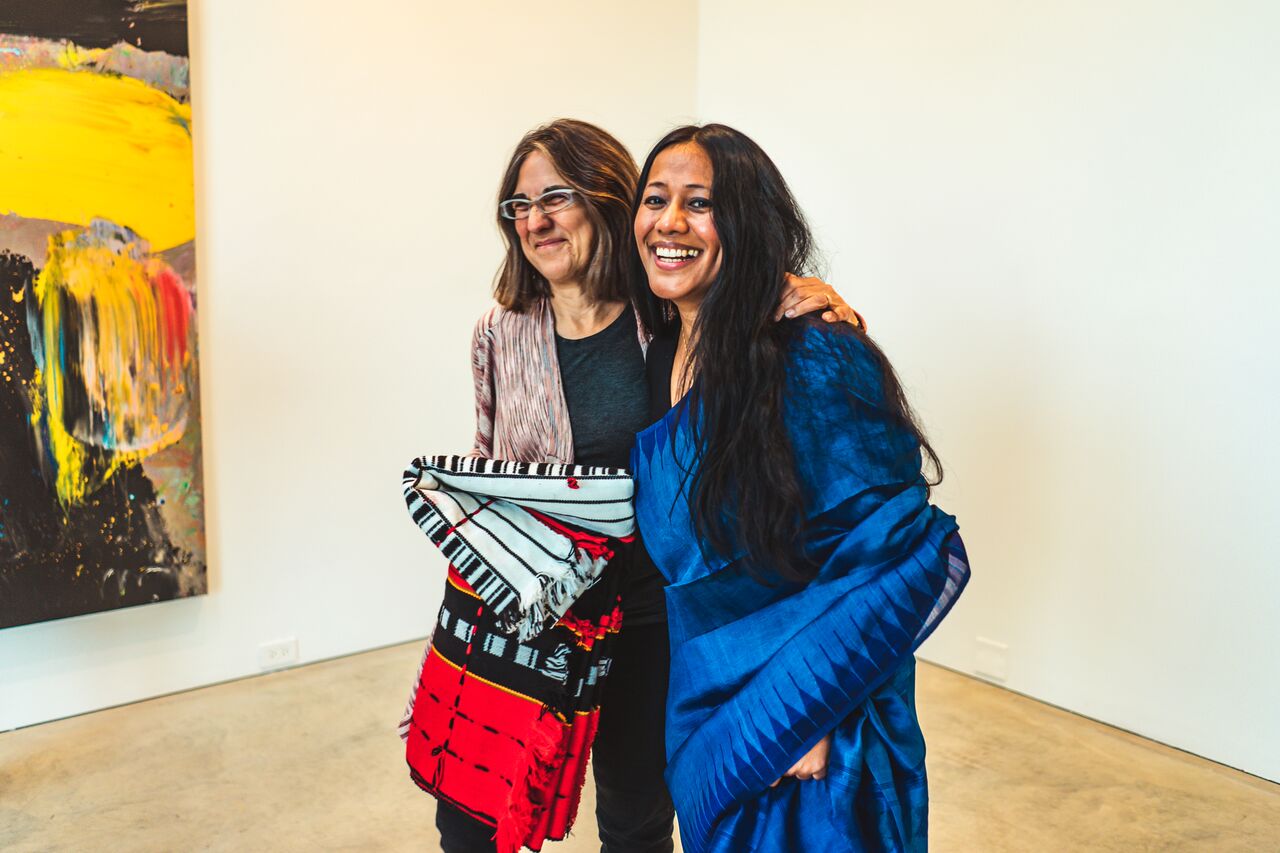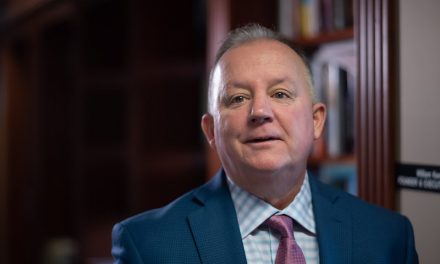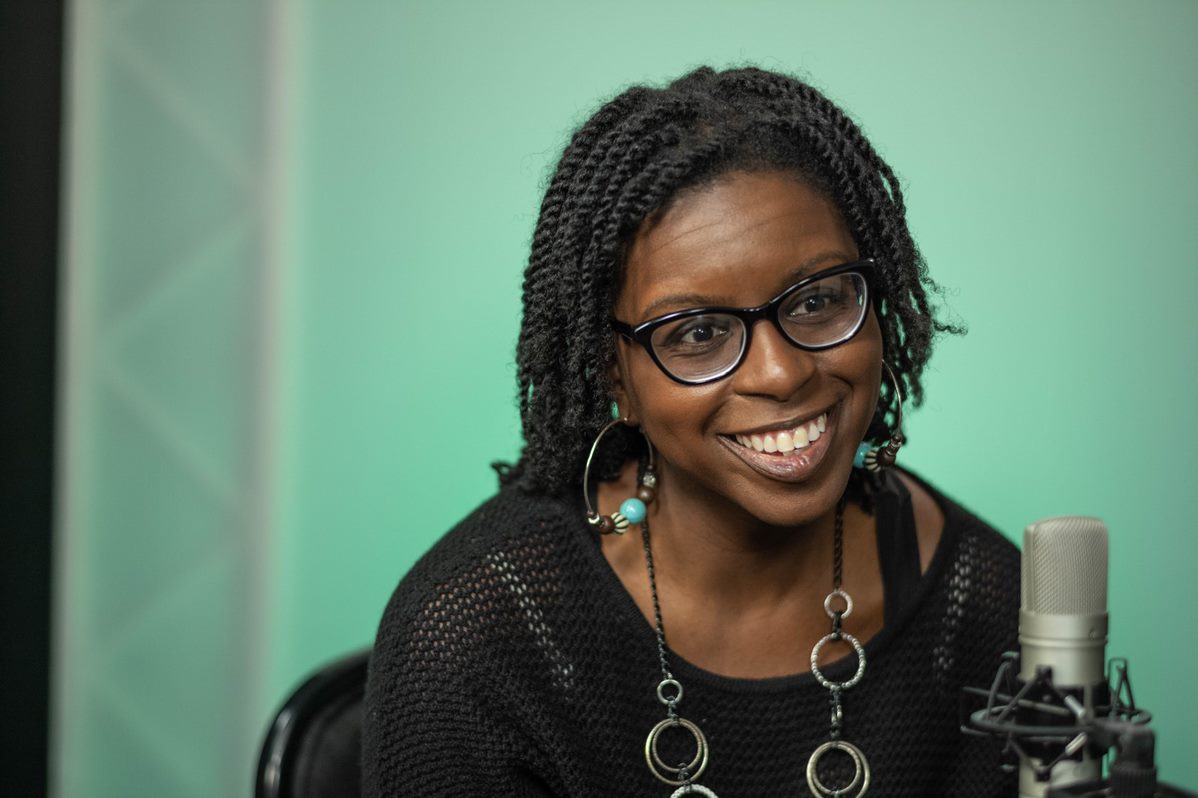This article first appeared in The Alt on November 8, 2017.
Photos by Kiki Vassilakis
Binalakshmi Nepram isn’t ready to die. She has work to do. The poet, author, activist, and mother has a message to spread. Things weren’t always so clear. After escaping her home state of Manipur in India she languished, lost, afraid, uncertain.
She came to Art Omi in the Hudson Valley during this dark period where she felt everything was lost. After some time in the idyllic countryside, walking through Omi’s sculpture gardens and working with other writers, she came to realize that she wasn’t ready to capitulate to her tormentors in her state of Manipur—she wasn’t ready to be silenced.
Earlier this year, commandos stormed Nepram’s family home, apparently looking to silence her the way so many other advocates, writers, reporters in India have been—in a hail of gunfire. She was at a wedding and received a tip from her mother that she needed to flee. Nepram packed a bag at 2 AM, got on a plane and headed for America, abandoning everything she had ever known and loved.
Nepram remains in touch with her family back home—she Sykpes with them and sends packages back home nearly every other day. Those Skype session could be the closest she gets to home for years. She doesn’t expect to return to Manipur until Prime Minister Narenda Modi is out of office. India has come under the grips of an extreme right-wing Hindu nationalist fervor.
There is hope for Nepram, though. She’s working with immigration lawyers to secure a visa that will allow her to bring some of her family to the US from India. If she fails to secure it, she will have to apply for asylum and won’t be able to travel to India for 3 to 7 years.
“I grew up in a state of violence,” says Nepram. “And when a child grows up in a violent war zone they don’t think it’s war, they think it’s normal. I remember the military coming to our home, checking kitchens, checking our cabinets, checking under our beds with bayonets. I remember there was a massacre one day and we couldn’t go to school and thought it was normal.”

Nepram says it’s when she left Manipur and spent time in New Delhi pursuing her education that she realized she hadn’t grown up under what most would call “normal conditions.”
For years Nepram has worked to expose the gun violence and political strife that has lead to the killings of so many in Manipur. What began earlier in Nepram’s life as a conflict between Indian government forces and separatists has developed into a conflict waged between dozens of armed factions of various political ideologies and simple drug dealers and criminals. Nepram has documented the sources of the guns that fuel the conflict, and she’s helped families who have lost sons and fathers to the violence find a way to provide for themselves—providing initial funding for them to start small businesses selling produce or home-woven clothing. Perhaps her most provocative and dangerous act was helping families seek justice against those who commit political killings—including the state, which she says is regularly involved in extrajudicial executions.
“When I started my work I published historical fiction to let people know what happened here in Manipur,” says Nepram. “After writing three books I started traveling village after village looking for survivor families. When you are caught between two sides in a conflict area everyone is suspicious of each other.”
Nepram says she searched for “conflict tombs” as a sign that a family there had suffered a loss due to ongoing factional violence. She began giving the families seed money for businesses—either to weave garments or sell produce.
“We set up the Manipur Gun Survivors Network. We named it that to show that the weaponization of our community has destroyed our present and future.”
But why give these families money? “We discovered how impoverished the families impacted by violence are. We discovered that war doesn’t impact the rich it kicks the stomach of the poorest of the poor. It hurts the dignity of those with nothing.”
Nepram began by giving these families money she had received from her books. Eventually she discovered that she could raise funds from humanitarian groups. Her group began distributing bank cards to the families rather than cash. It was the first form of identification many of these people had and the first time they’d interacted with a financial institution. “It gave them a sense of ownership,” says Nepram.
On top of making sure these families are healthy, have food on the table and that the children are getting an education, Nepram’s group helps these families file legal actions against people or groups that killed their loved ones—whether it be the Indian government or rebel groups.
It’s an action that gives the families some sense of power and justice. But it’s also something that has drawn the ire of both the Indian government and militant groups. It’s why Nepram had to flee to America.
She believes it was a particular case that brought commandos to her door. Nepram filed a case against the son of the Chief Minister of Manipur for allegedly killing a 19-year-old in a traffic argument.
Nepram and other experts say Manipur has received little coverage outside of India, and that this is not a mistake. “If you come to India with a visa you are not allowed to come to Manipur. India keeps the world away from us. The media is not allowed, civilians are not allowed.”
Nepram has repeatedly tried to get the United Nations Human Rights Council to take action. She says after confronting delegates from China and the United States she was told quietly that their hands are tied because they can’t afford to alienate India.
“I’ve been repeatedly warned not to tell my story by the Indian government. As a result of my being here the Indian government must be hunting where I am,” says Nepram. “Because they know I speak even if they warn me not to speak. And when we speak up for our region it is not because we want cessation. What we’re saying is if you want us to be part of your country remove the military remove martial law, take your guns and show us rule of law and good governance.”

History
Manipur was the last state to become part of British India. The British left India in 1947 and Manipur adopted a democratic form of government. In 1949 the head of India’s legislature signed a treaty of accession making Manipur part of India. Since that time a number of insurgent groups have sought to return Manipur’s independence. The United Liberation Front, the first official separatist faction, formed in 1964. A number of other groups including the People’s Liberation Army of Manipur, People’s Revolutionary Party of Kangleipak and the Kangleipak Communist Party formed in the following years.
In 1980 India declared Manipur an area of disturbance, dispatched its military and declared martial law. According to Nepram, civilians lead their lives in fear of both the Indian government, which she alleges is responsible for scores of extrajudicial killings and the various armed resistance factions that demand taxes and tithes as well as abduct people for slave labor and ransom. “In India, we have the highest rate of disappearance,” says Nepram. “Forget dead bodies, we don’t even get our children to mourn.”
Women are frequently the targets of extreme violence in Manipur. In 2004, Thangjam Manorama was found about two miles from her mom having been raped, mutilated and shot multiple times including in the vagina. Activists suspected it was the act of an Indian Paramilitary unit called the 17th Assam Rifles. Massive protests against Indian occupation followed the killing as it was the order for martial law that allowed the Rifles to exist. In one famous protest, nearly 30 women marched naked to the headquarters of the Assam Rifles chanting “Indian army rape us too.”
“Armed groups started repressing us. Young men at age 16, 17 have an AK47, they think they can control our lives. It’s not the revolution the way we want,” says Nepram.
“These movements degenerated and made it worse so common civilians became caught in the crossfire. The conflict is so entrenched that we started saying whoever killed anyone leave it but we will help survivor families put food on table, see if the children are going to school, see if they are healthy and see if they want to file a legal action.”
Censorship and violent acts against activists and journalists have spiked since Modi came to power in 2014. The murder of journalist and activist Guari Lankesh in September 2017 made headlines across the world. Lankesh, who frequently challenged Modi’s government and stood against right-wing Hindu extremism in her paper Gauri Lankesh Patrike, was shot to death by an unknown group of assailants while unlocking her front door after returning home from the office. Her murder was followed by massive protests across India.
“That is how they would come for me. I know it. That is what would have happened to me if I had stayed,” Nepram says, tears streaming down her cheeks with a look of anger, indignation.
America
When Nepram arrived in the U.S. she spent a few weeks sleeping on the couch of one acquaintance and then the next. Eventually, she says she was desperate, depressed, out of resources and ready to apply for asylum. She says that human rights and immigration groups were no help, providing no options. But arts advocacy groups came to the rescue and connected her with Arts Omi. “I’m not stupid. I’m not without talent. I’ve written four books. I’m a researcher.” Nepram is pursuing a visa that takes her work as a researcher, author, and activist into account. And thanks to connections through Omi she’s started to make a little money again.
Omi International Arts Center is a not-for-profit arts organization that looks to foster creative exploration between international artists of various artistic fields through residency programs, workshops, and professional opportunities. During her time at Omi, Nepram started devising a project with other international writers that focuses on the impact of violence in their separate nations and how it is related. She also met with a number of literary agents and is working on her poetry.

At the visitor’s center at Omi, Nepram hands a weaving over to Ruth Adams, executive director of Omi, as a thank you for hosting her. Afterward, we sit in Omi’s cafe and chat, the curiously warm November sun creating a bright white hue around everything. Nepram talks about her many visits to the United Nations—her efforts to get officials to recognize the threat of gun violence and attacks on women and the lack of response. She details her confrontations with UN representatives from the United States and China about the fact that weapons their countries produce are being used en masse to kill the people of Manipur. “They say, ‘We have no idea what you’re talking about!’ and walk away,” she says, disgusted.
“We’re all connected. These greedy people are flooding our communities with guns and we must make them feel shame. They need to see what they are doing to us. I must do something. We must do something and it can’t be a candlelight vigil. They fade from memory so quickly. They don’t change anything. I’m ready to work with whoever I can to make real change.”
Nepram takes me to the writers’ house at Omi to show me two of her books. Inside there are photos of young men posing with firearms, pictures of women rallying against gun violence with torches and lamps in their hands. After a flip of the page, Nepram points, “There. That is my niece,” she says. It’s a picture of the body of a small girl, bloody and riddled with bullets. “When my niece died we couldn’t even get her body because it was shattered into pieces. She went to badminton practice, stepped on an IED and was blasted into pieces.”
Twilight sets in at Omi, this is Nepram’s last day here. She’s spent her time talking with other writers, working on her own poetry and hopefully securing a visa. She’s received death threats on social media. She knows the people who would like to see her in Manipur are still paying attention but she’s ready. She’s at peace and will board a train to New York City tomorrow morning to begin collaborating, telling her story, spreading her message, amplifying her voice as loud as possible. Most Americans may not know anything about the violence in Manipur but if Nepram has anything to say about it, they soon will.






